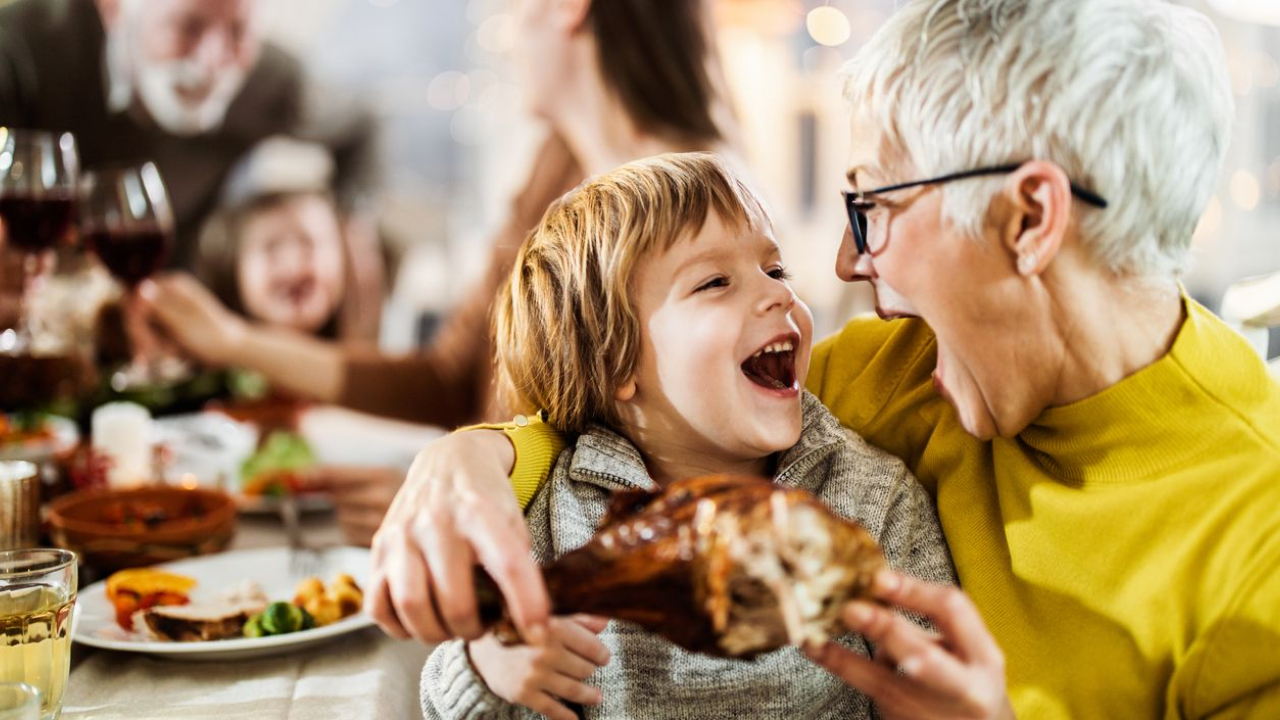
A More Peaceful Holiday Table: Tips for Parents and Hosts to Help Kids with Feeding Differences
Holidays invite us to gather, laugh, talk, and share. Food is woven into these moments - not just as nourishment, but as a symbol of love, culture, and tradition. We offer food in times of grief. We share food to welcome someone new. We celebrate with food because it brings us together.
"Food is our common ground, a universal experience." — James Beard
Yet for families of children with feeding differences - picky eating, feeding delays, or food aversion - holiday meals can be uniquely challenging. What feels festive for some can feel stressful and overwhelming for both the child and their caregivers.

What Does a Holiday Meal Feel Like for the Child?
For many children, holiday meals bring a mix of unfamiliar foods, new environments, and heightened expectations. The combination can feel overwhelming - especially when there’s pressure (spoken or unspoken) to eat or “be polite.”
For autistic children or those with sensory processing differences, the experience can be even more intense. Holiday meals often come with strong smells, loud chatter, clattering dishes, shifting routines, and multiple people watching them eat. This sensory overload can quickly lead to stress, overwhelm, or mealtime meltdowns. (Read more on my blog about Autism and Feeding or Sensory Processing and Feeding)
What Does the Holiday Meal Feel Like for the Parent?
For many parents, the fear that their child won’t eat - combined with comments or judgment from friends and family can make holiday meals extremely stressful and emotional.
Parents often tell me they dread mealtimes with extended family because grandparents, aunts, uncles, and well-meaning friends tend to pressure, prompt, or push their child to eat. These caregivers have worked hard in feeding therapy to build calm, positive, low-pressure meals at home. Yet during holiday gatherings, they often find themselves surrounded by people using strategies they know will increase anxiety and decrease their child's ability to try new foods.
"Comparison is the thief of joy" - Theodore Roosevelt
Many parents also share that visiting another family’s home during the holidays can feel discouraging. Watching other children eat a wide variety of foods with ease can stir up complex emotions: fear, grief, sadness, and a sense of loss for what feeding “could” look like. Parents may feel embarrassed when they bring familiar foods from home or when their child struggles with self-feeding.
Hovering over all of this is the sense of being watched. Parents often say they feel scrutinized, as though every bite (or non-bite) their child takes is being evaluated. Unsolicited advice about “how to get them to eat better” can undermine a parent’s confidence and suggest, unfairly, that they aren’t doing enough or doing it “right.”
(Read more on my blog about Parents Feeling Judged About Their Child's Feeding and Parent Mental Health and Feeding Disorders).

10 Holiday Survival Tips for Parents of Kids with Feeding Differences
1. Offer a meal or snack before the event.
If your child doesn’t eat well at the party, at least you know they’re not running on empty.
2. Let the host know about your child’s feeding challenges ahead of time.
A quick conversation can prevent awkward moments or misunderstandings.
3. Ask the host to have at least one familiar, simple food available.
Options like bread, cheese, crackers, or fruit can help your child feel more at ease.
4. Bring a safe food from home.
Pack something your child reliably enjoys so they feel secure and included.
5. Prepare your child by talking about what to expect.
Review where you’re going, who will be there, and what foods might be offered. Predictability reduces stress.
6. Have a polite, ready-to-use response for comments about your child’s eating.
Try phrases like:
-
“Eating in unfamiliar places is hard for her.”
-
“We’re working with an expert to help her listen to her body and enjoy food without pressure.”
7. Remind yourself that you’re doing a great job.
You’re showing up, you’re learning, and you’re supporting your child through something truly challenging.
8. Let go of what others think.
No one knows your child like you do. You are the expert on your child and you’re making the right choices for them.
9. Remember that these are your holidays too.
Take a breath. Allow yourself to enjoy time with the people you love, even if the meal doesn’t go perfectly.
10. If you’re hosting, involve your child in food preparation or serving.
Helping in the kitchen or passing out napkins can boost confidence and connection without adding pressure to eat.

10 Tips When Hosting a Child with Feeding Differences
1. Lead with kindness, understanding, and non-judgment.
A kind, welcoming approach sets the tone for the whole gathering.
2. Ask your guests which foods their child is comfortable eating.
This small gesture shows care and helps the family feel included.
3. Consider serving the meal buffet-style.
Letting guests choose their own foods and portions helps reduce pressure for the child.
4. Encourage families to bring a safe food from home.
This ensures the child has something they can enjoy without stress.
5. Offer simple “helping jobs” if the child is interested.
Tasks like handing out napkins or helping serve others can build connection without focusing on eating.
6. Avoid comments about the child’s eating or food preferences.
Even well-meaning observations can increase anxiety.
7. Don’t take it personally if the child doesn’t eat much - or at all.
Holiday meals can be overwhelming, and eating less is a normal response.
8. Hold back from offering unsolicited feeding advice.
Parents often have a plan guided by professionals. Respecting that goes a long way.
9. Never pressure the child to eat or “just try a bite.”
Pressure reduces appetite, increases stress, and makes mealtimes harder for everyone.
10. Focus on what truly matters: connection.
Enjoy the mealtime together - share laughter, stories, and warmth. Inclusion is more important than what’s on the plate.

Closing Thoughts
I wish you and your loved ones a wonderful holiday season. Give yourself a break and gently lower expectations around your child’s eating or feeding progress during this time. The holidays are busy, hectic, and often emotional for everyone - kids included. With routines disrupted and sensory demands high, it’s completely normal for eating to look different.
Be kind to yourself. Take a breather when you need one. Celebrate the moments that matter and soak in time with friends and family. Try not to let anyone steal your joy. You are doing an incredible job.
Keep Calm and Holiday On! ✨❤️

